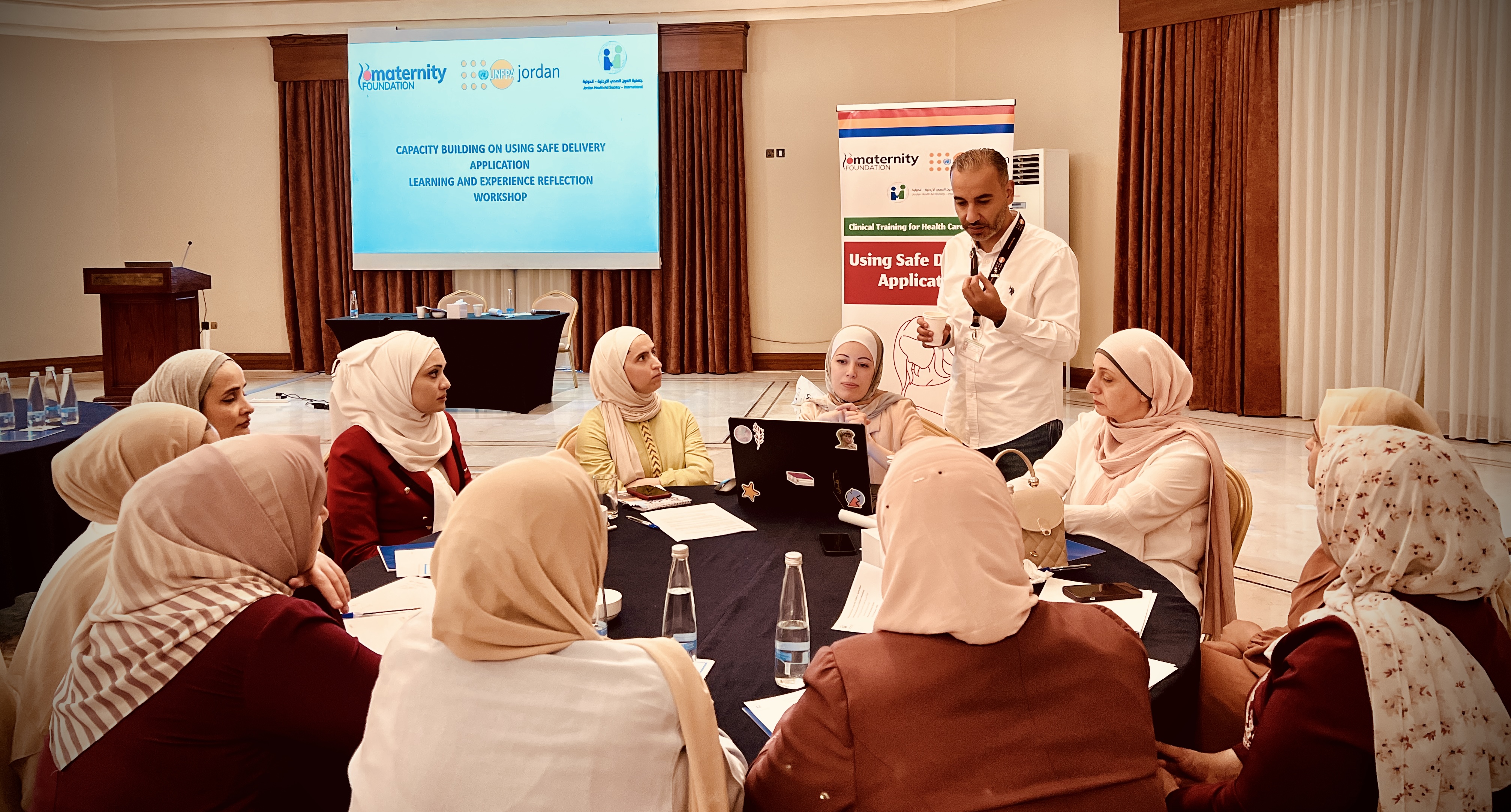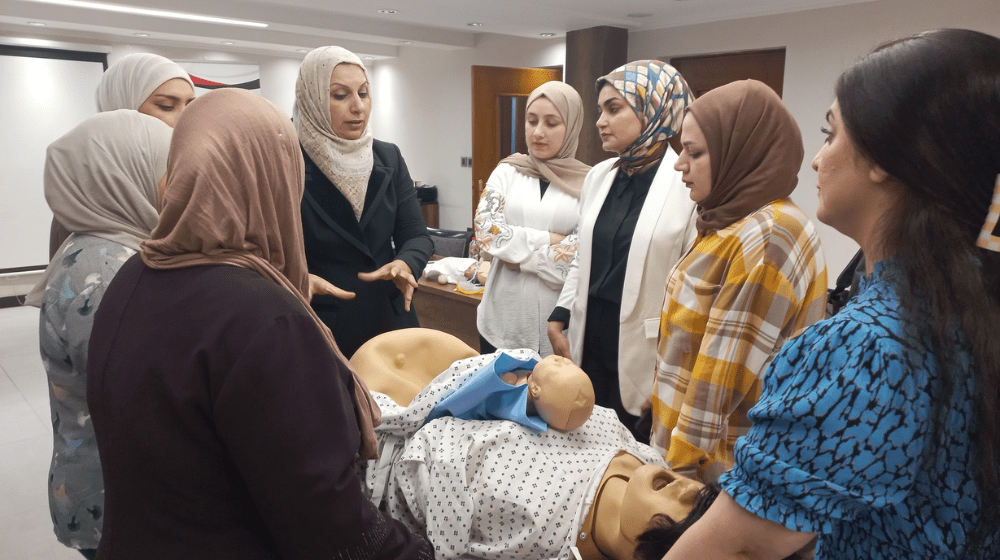Every two minutes, a woman or girl dies due to pregnancy or childbirth. The vast majority of these tragedies are preventable, and in crisis situations the risks are often far higher.
Many of these deaths are due to complications and illnesses that could have been prevented with proper antenatal, delivery and post-natal care – services provided by midwives.
Many countries in the Arab region have met the Sustainable Development Goals’ target of achieving below 70 maternal deaths per 100,000 live births. Yet the average in the region was still more than double that rate in 2017, with 151 deaths per 100,000 live births.
The Safe Delivery App provides midwives and health workers with access to life-saving guidelines on managing deliveries and safely managing risky childbirth complications.
The app, which is geared towards areas with limited resources, was recently piloted in Iraq, Syria and in Jordan's Zaatari refugee camp.
"As a comprehensive digital training tool, the Safe Delivery App has updated my scientific and practical knowledge and boosted my confidence to ensure I can manage any birthing scenario." says a healthcare worker from the Jordan Health Aid Society (JHASi).
A series of training and tests to familiarize health workers with the app in the three countries confirmed that the app, which can be downloaded and used offline, helps refresh and advance skills for midwives and health workers.
Users found the app to be useful as an accessible tool to refresh their knowledge and as a quick reference for managing dangerous childbirth complications such as postpartum hemorrhage, which accounts for 75% of maternal deaths in Jordan.

“The Safe Delivery App was an innovative solution that provided essential information and instruction videos, significantly aiding us in handling various maternal and child health scenarios, enhancing our capabilities, and reducing mortality rates,” says a midwife from the Jordan Health Aid Society.
"The training and rollout have been a transformative experience for me as a health worker. It has equipped me with the necessary skills and knowledge to provide better care to women and girls in need for maternal services. I am grateful for the opportunity to be a part of this pilot program." says a midwife in Salamiyah, Hama Governorate in Western Syria.
The pilot phase confirmed that the app strengthens peer-learning and support among health workers and aids efforts to strengthen competencies among health authorities and partners.
The Safe Delivery app was conceptualized by the Denmark-based Maternity Foundation, Copenhagen University and the University of Southern Denmark. It has been rolled out in 70 countries since its launch in 2015, reaching over 400,000 professionals by 2023. UNFPA has worked with the Maternity Foundation to boost midwifery skills and ensure safe births since 2016.
The Arabic version was launched in 2022. It includes 13 clinical modules, along with animated explainer videos, instructions on practical procedures, a drug reference list, and a self-lead learning component, where midwives can test their knowledge and obtain a certificate.
“We have seen that the Safe Delivery App provides a quick and crucial reference for midwives and health workers that are working in some of the most challenging environments. They also gave us good and useful feedback on ways we can further refine the app as we move forward,” says Dr Hala Al-Khair, Technical officer on Sexual and Reproductive Health for UNFPA Syria.
"The app has greatly improved my efficiency in providing care to my patients, allowing me to easily access important information and resources at my fingertips,” adds a midwife in North East Syria.
In Iraq, the training programme is expanding, with the Danish Red Cross equipping volunteers in 12 governorates. In Syria, the app is being shared in formal and informal groups of community midwives. In Jordan, UNFPA is exploring opportunities to introduce the Safe Delivery App into the national midwifery curriculum in partnership with the Jordan Health Aid Society International and the Ministry of Health.


